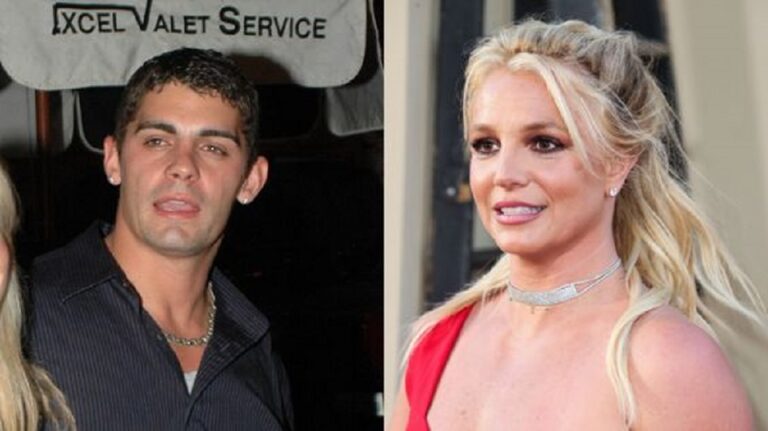
From reading uncomfortable rants and getting caught up in Facebook stalking, social media is opening up a whole new world of #awkward situations. Here’s how to deal with them.

A group of friends posts pictures of an activity that you weren’t invited to
You ‘re scrolling just to see a video of your group of friends in an activity you’ve never been asked to do. You might feel rejected, but bear in mind that you don’t know the circumstances— maybe there was a small list of guests, or maybe they felt you wouldn’t be interested.
“We have to remember that we don’t have to be included in every single function,” says Diane Gottsman, national etiquette expert and owner of The Protocol School of Texas. “That group has the right to select who they want to be with that night. It doesn’t mean they won’t invite you the next time.”
But if you still feel it’s a personal dig (maybe this is the first time your best friends have come together without you), call the one you’re closest to for an explanation. Just make sure your tone indicates that you’re genuinely curious about the justification, rather than just upset about being left out, says Gottsman.

Your friend posts political rants you don’t want to see
You ‘re opening your feed to another long-winded political rant that makes your brain hurt. Rather than lashing out your own stupid response, change your settings so you don’t need to see those types of posts. Hide a person’s updates or delete a friend if it’s someone you hardly ever see in real life, says New York etiquette expert Thomas “Mister Manners” Farley.
If it’s someone close to you, consider discussing face-to-face that you think the individual should cut down on the problematic posts. Political views tend to be pretty rough, so social media posts, no matter how well-written, rarely change another person’s point of view dramatically — but your friend might ruin relationships without realizing it, Farley says.
“You have so many people who are in some way, shape, or form in your life for a reason, and could very quickly leave your life for the things you’re posting,” he says. “It’s not worth it.”

Someone leaves a negative comment on your post
You posted what you thought was an honest post, but then someone responds with a sarcastic comment that criticizes your beliefs. Before you respond harshly, read back what you wrote and erase the post if it could have accidentally come off as offensive, Farley says.
It’s hard to interpret tone through writing, and besides, you might need to rephrase it. If it is obvious that the other person misinterprets your words, explain your thinking process, and apologize for the misunderstanding, but just make sure you do it face-to-face or over the phone. “Continuing the dialogue in the virtual space is not going to help,” says Farley. “It will turn into a ping-pong match that the world can see.”

You’re digging deep into someone’s feed and accidentally hit “like”
You got distracted by looking at the old photos of a friend you haven’t spoken to in a while, so you accidentally hit “like” one of the messages. Facebook stalking has gone wrong. No need to freak out, though; the other person probably won’t worry about it.
“That’s what social media is for—to look and to scroll. That’s why we post things,” says Gottsman. “Everybody Facebook stalks, whether we want to admit it or not.” The other person will likely be flattered that you took the time to look through their posts, she says.

Your post starts a comments war
One friend comments on your post in support of what you say and another unknown person responds to that with a strongly worded difference of opinion. Next thing you know, two people who don’t know each other are starting World War III, thanks to your post. To put a stop on the heated debate, either delete the comments or delete the post itself, Farley says.
“[Leaving the post] is only going to throw gasoline on the fire for those who think the same way as these two who are suddenly hot and bothered,” he says. But make sure to message each of the debaters to personally apologize for deleting what they said, and explain that you only wanted to delete the negativity.

You feel guilty ignoring a friend request
Someone you haven’t been talking to since high school just added you as a friend. The individual is definitely not a stranger, however, you’re not sure if you want to offer access to your personal posts. Your privacy is totally up to you, so hit ignore straight away so you don’t have to ask yourself again every time you log in, says Gottsman. There’s no need to feel bad— the other person probably doesn’t even care.
“Oftentimes they’re offered different suggestions of people they may know. They’re hitting check, check, check,” she says. “They’ll pick up the phone and talk if they really want to talk. There are still other forms of communication.”

No one is RSVPing to the event you created
You set up a Facebook event for your social gathering weeks ago, but now it’s the week of, and only three people have given a solid response. Post a reminder on your profile and reach out to friends you ‘re particularly interested in coming.
“We have this paralysis when it comes to invites where we don’t want to say ‘yes’ and we don’t want to say ‘no,’ so instead we say nothing,” says Farley. “It’s unfair to anyone [who is] planning a party and has no idea of what the numbers are.”

Your teenage niece is posting party photos
Have you seen some disturbing photos of your underage relative partying hard? Whatever you choose to do, don’t leave a comment on how inappropriate a photo is, Farley says. If the photos could influence your child’s chances of going to college or going to work— like photographs of a minor drinking alcohol — express your concern to their parents. But if you only judge the teen’s controversial but safe choices, keep your thoughts to yourself, says Gottsman.
“If you feel like the child is going to be in danger, as an adult and family member, you would consider talking to the parents about it,” she says. “If it’s just at a party and you think the dress is too short, that’s subjective to the parents.”

An acquaintance is venting about his personal life
Anyone you ‘re friends with on social media appears to be going through difficult times. How far are you supposed to go in showing concern? A very good friend needs a phone call after a traumatic life experience. A positive message would work for anyone else.
“The greatest comfort may be that 80 people commented on that post,” says Farley. “It might be better than a phone call because of the validation we feel when someone comments on our social media post.”
But if the individual is constantly complaining or posting a vague woe-is-me post, don’t feed into the attention-seeking, he says. Ignore the posts from an acquaintance, and express your concern for a close friend face-to-face, so that you can have a more sincere discussion.

Someone posted picture proof that you lied about your plans
You got out of activities by claiming that your kid was sick, but the fact is that something better came up with another group of friends. Now people are still posting photos from the night, blowing your cover. You know you shouldn’t have canceled your original plans in the first place, but now you’ve got to deal with the consequences.
“You could pray they don’t notice and don’t say anything,” says Gottsman. “They might be too polite to mention [it], but you’ve hurt their feelings.”
Make amends by recognizing what you did. Apologize as soon as you see the photos so that your friend can hear it right from you instead of being caught off guard from the photos, she says.

Your friend hasn’t responded to your private message
You sent a direct message to your buddy on social media days ago, but you still have to hear back. Don’t jump to the conclusion— the person probably hasn’t seen the message yet. Maybe your friend doesn’t check social media frequently, or maybe the notification never popped up.
“If you really want them to see it, send a text or pick up the phone,” says Gottsman.












































